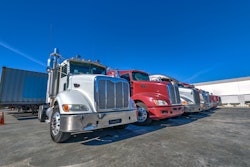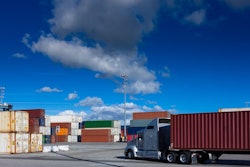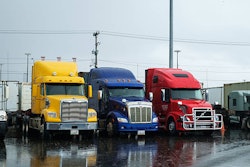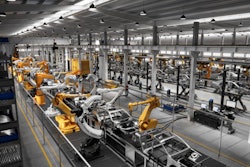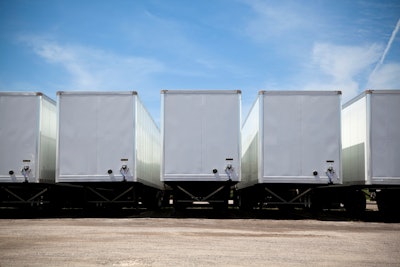
Lingering uncertainty across the economy and truck freight markets lingers, compounded by tariff volatility, continue to push down trailer orders.
Trailer net orders last month declined 34% month-over-month to 6,738 units, exceeding normal seasonal trends, according to FTR Transportation Intelligence.
Despite the decline, May net orders were up 3% year-over-year against a weak May 2024.
ACT Research’s preliminary data indicated a -26% month-over-month decline, with orders falling more than 2,300 units, bringing the May total to 6,600 units. Order intake was nearly 12% higher compared to May 2024.
Order cancellations spiked to 37.6% of gross orders in May, according to FTR, the highest rate in a year and significantly above from April’s 20% figure. Cumulative net orders for the 2026 order cycle (September 2024 to May 2025) totaled 161,657 units, down 10% from the prior year, averaging 17,962 units per month.
[RELATED: Trailer orders plunge in April due to economic and policy headwinds]
A decline was expected as May is one of the weakest order months of the annual cycle, said Jennifer McNealy, director of commercial vehicle market research and publications at ACT Research.
“More concerning, though, is this level of order acceptance does nothing to support backlog growth, particularly with the elevated cancellation rates reported in the past several months,” McNealy said.
With the for-hire truck market still facing pressure (soft freight demand, low used equipment values, high interest rates and ongoing policy uncertainty), McNealy said ACT’s outlook remains subdued for build and order intake levels.
The 50% tariffs on steel, aluminum, and fabricated components will raise manufacturing costs significantly, putting further downward pressure on trailer demand – parts of an ongoing tariff policy shift that is disrupting the U.S. trailer market, said Dan Moyer, senior analyst, commercial vehicles, at FTR.
While tariffs on Chinese imports have brought some relief, country-specific measures continue to add cost pressure.
“OEMs and suppliers face pressure to either absorb rising costs or pass some or all of them on to fleets, potentially impacting fleet expansion and maintenance strategies,” said Moyer, adding that this could lead fleets to delay new trailer purchase or explore refurbished and alternative options.
“Potential consequences include heightened market price sensitivity, extended trailer lifecyles, and a shifting of some demand toward used equipment or alternative configurations,” he said.
Trailer production also softened, FTR reported. U.S. total trailer builds declined 4% from April and -24% year-over-year to 16,958 units in May. Year-to-date builds totaled 80,729 units, -29% lower than last year’s pace, with a monthly average of 16,146 units.
With orders lagging production, FTR stated that trailer backlogs shrank by 11,376 units (-9% month-over-month, -16% year-over-year) to 108,955 units. The backlog-to-build ratio dropped to 6.4 months, signaling softening to demand.


